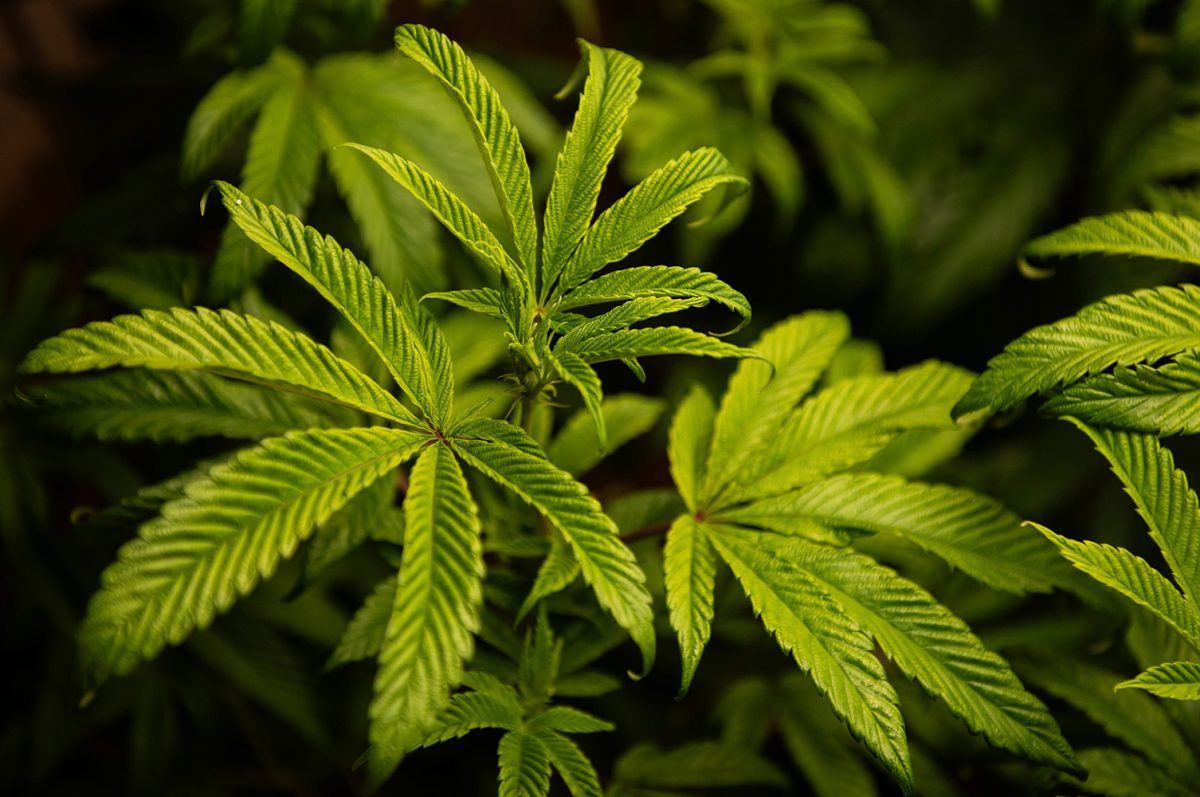While she was out for a walk a few years ago, Duveen Robinson, a 90-year-old Iowa City resident, took a nasty tumble when she stepped in a pothole. Robinson chipped off an inch-long piece of her kneecap and was hardly able to walk.
Later that day, however, she used a topical CBD and THC ointment that she said allowed her to regain mobility literally overnight.
“It helped me immensely,” Robinson said. “It was a godsend that I was able to be mobile so quickly afterward. If you have osteoarthritis like a lot of senior citizens do, I would recommend the ointment and CBD drops to complement it depending on how severe it is.”
As a career registered nurse, Robinson said she was always a firm believer in medicine, but her experiences have drastically shifted her view of common medical practices.
“I became a little dubious about Western medicine as I went along,” Robinson said. “I’m disillusioned in the care of chronic diseases such as arthritis.”
Researchers at the University of Iowa recently found this to be the case for many older adults all over the country.
A study published in February 2024 conducted by UI College of Public Health professor Brian Kaskie looked at cannabis use in adults aged 50 and older and found that one in six middle-aged people in the U.S. use cannabis for medicinal purposes. The study also found four out of five participants reported a positive attitude toward the drug.
Kaskie said many older adults experience diseases like cancer or glaucoma and use cannabis for pain management. He also found that some users took cannabis as an alternative to opioids.
“A lot of older persons are using cannabis now when they would have never thought about using cannabis because [they] grew up in a time when cannabis was illegal, and so for these folks to actually think about using cannabis was a big adjustment,” Kaskie said.
Right now, only medical cannabis products are legal in the state of Iowa. However, many liquor stores and smoke shops are beginning to sell hemp-derived THC beverages and Delta-9 products.
After taking this alternative pathway for medication, Kaskie said many patients realize cannabis isn’t a party drug, and can actually help manage their pain. This mindset regarding cannabis is becoming more readily adopted across the nation, with 38 states having legalized cannabis for recreational or medical use.
Beyond pain management, Kaskie looked at the benefits of using cannabis at the end of a person’s life. He said many times when older adults are in hospice and in extreme pain, they are on so many opioids that they can hardly communicate with their families or loved ones before they die.
“If we offer them cannabis as an alternative, it manages all those symptoms they experience, but it also allows them to be with their family,” Kaskie said. “They’re still with it mentally and can still be with them, and that’s pretty important.”
When it comes to the forms of cannabis older adults are consuming, Kaskie said peoples’ preferences for joints, edibles, or topical creams are much like a coffee drinker’s preference for a light roast or a dark roast.
Despite the many benefits for older people, Billy Anthony, partnerships manager at Leafwell Medical Cannabis, a company that helps people get online medical marijuana cards, said of the roughly 75,000 adults aged 50 and older that they’ve enrolled, about 400 are from Iowa.
RELATED: Iowa City restaurants, customers embrace new THC drink products
“As it becomes more ubiquitous and something that people are familiar with, that social stigma certainly started to decrease,” Anthony said. “In my opinion, there does seem to be a kind of snowballing effect in terms of the acceptance.”
Kaskie said as people continue to see the benefits of cannabis, Iowa lawmakers will start having a more open mind to cannabis.
“I would think as more and more people become familiar with it, the leadership of Iowa will be coming around to the idea that maybe we should open this up a little bit,” he said. “As more education and research says this is not a harmful substance, then they’re more likely to accept it. And if it helps increase state revenue, they’ll consider it more seriously.”
Using medical marijuana has opened Robinson’s eyes to new medical treatments, she said, emphasizing how much she disagrees with current health professionals’ stance on the drug.
“I think the supplements enhance anything the pharmaceuticals utilize, but they’re not promoted,” Robinson said.



